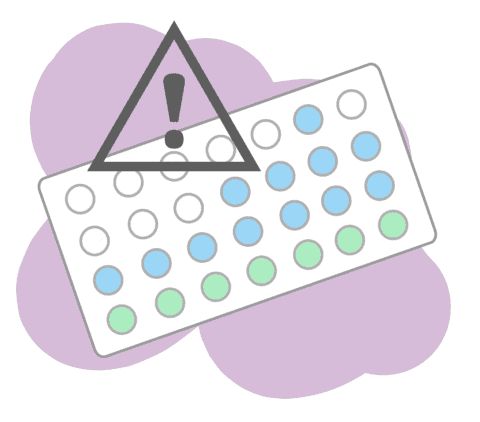A Sept. 28 study linked the use of hormonal birth control to the development of depression in women, and the media was quick to relate the two. While it’s easy to accept these headlines as the absolute truth, the release of this study is anything but conclusive.
The study was conducted in Denmark and published in the medical research journal JAMA Psychiatry, tracking, among many things, the usage of hormonal contraceptives, the redemption of a prescription for antidepressants and the first diagnosis of a depressive disorder.
After a 14 year period, the study reported a potential increased risk for depression in women taking hormonal birth control, a group of medications that includes  oral pills, patches, vaginal rings and hormone injections.
oral pills, patches, vaginal rings and hormone injections.
News outlets were quick to jump on the subject, with many reporting that birth control users had anywhere between a 40 and 80 per cent increased chance of developing depression.
However, most news outlets did not give a full report of the study’s findings or the nuances of scientific experiments, which can misinform or scare readers.
The study measured “depression” in individuals based on two criteria — the filling of a prescription for antidepressants or a diagnosis of depression at a psychiatric hospital. These are two very specific criteria.
What about that 80 per cent number? An article from National Public Radio does a great job of breaking it down:
“Several news stories reported an 80 per cent increase in risk of depression in some groups of women, but few noted that was relative risk, which is an expression of proportional increase. An 80 per cent relative risk does not mean that 80 per cent of women taking hormonal birth control develop depression. It means that if 10 women not taking hormonal birth control develop depression, then 18 women on the birth control will develop depression.”
Also, this relative risk was only for adolescents between the ages of 15 and 19 that were taking a combined oral contraceptive and this increased risk was only for the chance they’ll end up taking antidepressants.
Antidepressant is a category of medications that are prescribed for many things, including anxiety, OCD and eating disorders in addition to depression. So just because someone has a prescription doesn’t mean that they’re necessarily depressed.
If you look at the absolute risks of the study, the findings are much less shocking. Again, NPR does a good job of breaking it down:
“Among women not taking hormonal birth control, 1.7 per cent took antidepressants and 0.28 per cent received a depression diagnosis at a psychiatric hospital. By comparison, 2.2 per cent of women who started birth control began taking antidepressants afterward, and 0.3 per cent were diagnosed with depression at a hospital. Basically, about 0.5 per cent of women who began hormonal contraception developed depression who might not have otherwise.”
It seems there’s definitely a link between the two, especially for adolescent women, but that doesn’t mean that everyone should jump to conclusions and completely rule out hormonal birth control as a viable contraceptive method.
These findings show we need better writing from our journalists. We need writers that are educated on how to interpret scientific findings and what those findings actually mean for the people involved.
Yes, scientific data can be difficult for the layperson to interpret, but isn’t that the job of a journalist — to break down the confusing facts of world events into something that almost anyone can understand?
Readers must demand content writers who are more concerned with good journalism than sensationalism and clickbait headlines that generate a lot of Internet traffic.
We need to approach the information that’s presented to us critically and skeptically. We need to be asking tough questions, to both our journalists and our healthcare providers. You’re smart and you determine what is best for you and your body.
—
Emily Klatt
Graphic: Lesia Karalash / Graphics Editor
Leave a Reply